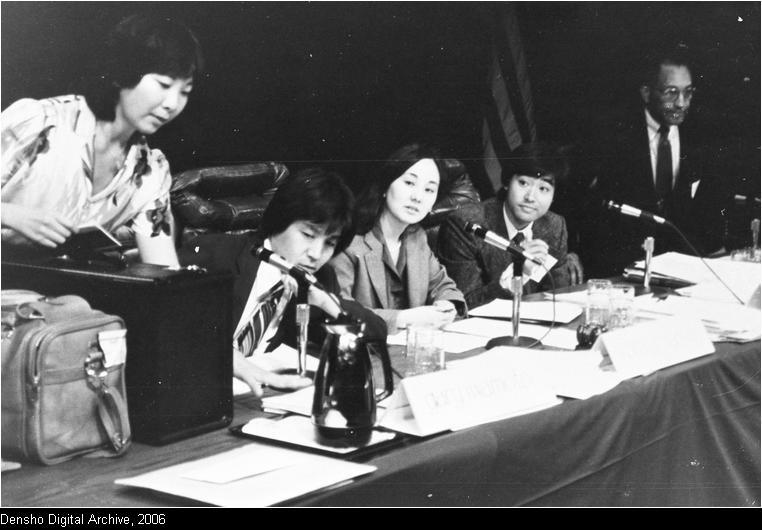Within hours of his inauguration today, President Donald Trump signed a series of executive orders – many of them foreshadowed in the days and weeks leading up to his first day in office. Journalists and policymakers are still sorting through the impact of Trump’s earliest presidential actions, but it is already clear that many will have overwhelming impact on many marginalized communities — including Asian Americans.
Long promised on the campaign trail, Trump signed an executive order today that threatens to end birthright citizenship. Birthright citizenship is protected by the Citizenship Clause of the Fourteenth Amendment of the US Constitution, as outlined by the US Supreme Court in United States vs. Wong Kim Ark. The case centered around Chinese American Wong Kim Ark, who was born in San Francisco to Chinese national parents — themselves barred by the Chinese Exclusion Act from immigrating to the United States or naturalizing as US citizens. Despite his birth on US soil, Wong Kim Ark was denied re-entry to the United States following a trip overseas on the assertion that he was not a US citizen. Ultimately, the US Supreme Court that the Fourteenth Amendment should be interpreted based on the principle of jus soli — that is, that a person born in the United States and therefore “subject to the jurisdiction thereof” is granted US citizenship without consideration for the political circumstances of the child’s parents. Importantly, the landmark Wong Kim Ark decision is considered a largely settled, fundamental precept of US constitutional law that has critically shaped the multiracial landscape of today’s America — including the modern Asian American community.
Trump’s executive order states that the federal government will no longer recognize the birthright citizenship of the children of undocumented immigrants, as well as the the children of immigrants on temporary visa status such as asylum seekers and those applying for permanent residency; however, his effort to unilaterally end birthright citizenship is almost certain to trigger legal challenges.
Separately, Trump also rescinded several executive orders from previous administrations that the Trump White House labeled as “harmful”. Among those rescinded – which range from executive orders related to COVID 19, climate change, and civil rights – is the Executive Order that established the White House Initiative on Asian Americans, Native Hawaiians and Pacific Islanders (WHIAANHPI).
Readers of this blog are likely to be familiar with WHIAAPI (which became WHIAANHPI under the Biden administration) and its valuable work over the years to spearhead public policy related to Asian Americans, Native Hawaiians, and Pacific Islanders.
Readers of this blog are likely to be familiar with WHIAAPI (which became WHIAANHPI under the Biden administration) and its valuable work over the years to spearhead public policy related to Asian Americans, Native Hawaiians, and Pacific Islanders; and, to improve our communities’ public and political engagement. WHIAAPI was first established in 1999 by Executive Order 13125 under President Bill Clinton. Subsequent presidents – including Trump in hist first term – have renewed the Initiative (and have also moved it between many different federal departments), with each administration establishing different priorities for the Initiative under its core mission of increasing political engagement of AANHPIs. Under the Obama administration, WHIAAPI was especially active to bridge the White House with Asian Americans and Pacific Islander advocacy groups, including organizing the first-ever White House summit on AAPIs, as well as advancing data disaggregation and data justice efforts.
The Initiative was renewed under the Trump administration, where it advanced largely business-friendly interests. Under the Biden administration, the Initiative was restored to its public policy focus under the Biden administration when it was also renamed WHIAANHPI to highlight the distinct interests of Native Hawaiians, and where its members worked tirelessly over the course of the Biden administration to advocate on behalf of our communities.
Trump’s actions today mark an end to a nearly quarter-century effort by both Democratic and Republican presidents to commit their administrations towards better political engagement with Asian Americans, Pacific Islanders, and Native Hawaiians. This outcome was predictable, perhaps, given the Trump administration’s open hostility towards all diversity, equity, and inclusion initiatives. Nonetheless, this — along with Trump’s many other actions and orders today — represent a stark blow and will almost certainly chill our advocacy and civil rights efforts on behalf of the Asian American, Pacific Islander, and Native Hawaiian communities in the years to come.


